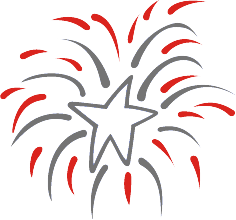 With a brief glance and nod towards London, where in a couple of weeks’ time the Olympic Games will involve goals (whether teams will be kicking them or individual athletes will be setting them) we thought we’d take a brief look at the nature of goals and goal setting.
With a brief glance and nod towards London, where in a couple of weeks’ time the Olympic Games will involve goals (whether teams will be kicking them or individual athletes will be setting them) we thought we’d take a brief look at the nature of goals and goal setting.
According to the Online Etymology Dictionary, the word goal was first encountered in the 1530s, meaning end point of a race. Although its origin is uncertain, it was perhaps from the Old English word ‘gal’ meaning obstacle or barrier. It did appear once earlier, in the early 14th century, with an apparent sense of boundary or limit. Its more figurative sense as object of an effort first came about in the 1540s.
So for a number of centuries the word ‘goal’ has been part of our daily vocabulary. In all sorts of contexts, human beings have been setting goals or kicking goals – as long as ‘they’ don’t keep moving the goal posts! :)
A web search this morning for goal setting produced 75,600,000 hits! And we ourselves had earlier gathered a miniscule number of these for the Useful Websites page of our site here. To be more precise for the matheticians among you, a tiny .00001% of those available on the web today. :)
So it was fascinating to come across recently a 2009 article from researchers at the University of Arizona: Goals Gone Wild: The Systematic Side Effects of Over-Prescribing Goal Setting.
In it, they explain how the use of goal setting can degrade employee performance, shift focus away from important but nonspecified goals, harm interpersonal relationships, corrode organizational culture, and motivate risky and unethical behaviors.
Whew! Serious side-effects indeed!
So if you do happen to be looking at the whole issue of setting goals, whether personally or in the workplace – or if you’re dropping by those pages we’ve included in the resources on our site – you may like to consider the advice of those Arizona researchers:
Rather than dispensing goal setting as a benign, over-the-counter treatment for motivation, managers and scholars need to conceptualize goal setting as a prescription-strength medication that requires careful dosing, consideration of harmful side effects, and close supervision.
 Our monthly newsletter
Our monthly newsletter
Interesting stats on goal setting.
For setting and getting goals, you may want to check out a goal setting app called http://GoalsOnTrack.com, a very nicely built web app designed for tracking goals and todo lists, and supports time tracking too. It’s clear, focused, easy to navigate.